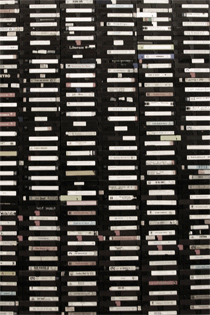Hervé Le Bras | 24.05.2022
In addition to the collapse of the right, the presidential election was the scene of two important facts analysed here: the appearance of a Zemmour vote and the consolidation of the Mélenchon vote, suggesting that an extreme right - extreme left opposition was in the making. Indeed, the geography of the Zemmour vote and its sociology are closer to the inaugural FN vote of 1984 than to the Marine Le Pen votes of 2017 and 2022. As for the [...]
Jacques Lévy | 23.05.2022
This special issue is based on maps and analyses of the French presidential election of 2022. [...]
Jacques Lévy, Sébastien Piantoni, Justine Richelle et Vinicius Santos Almeida | 23.05.2022
Voici une sélection des cartes publiées dans Le Grand Continent le 13 avril 2022 qui nous a autorisés à les republier. S’y ajoutent de nouvelles cartes réalisées après le second tour. Dans les deux cas, elles ont été réalisées par le pôle Cartographie de la chaire Intelligence spatiale de l’UPHF (Jacques Lévy, Sébastien Piantoni et Justine Richelle) avec [...]
Un acteur dans une société d’acteurs.
Xavier Bernier, Olivier Lazzarotti et Jacques Lévy | 01.05.2022
Actor and ‘actor’: Is there more than a metaphor between a performer and this concept of social science? Probably, and the war in Ukraine makes us more clearly aware of this. [...]
Si tu ne viens pas au commerce, le commerce ira à toi !
Xavier Bernier, Olivier Lazzarotti et Jacques Lévy | 01.04.2022
Itinerant trade is a very old activity. Today, it is deployed in a variety of forms and contexts. Nowadays, store trucks are developing very different business proposals with a large variety of vehicles. Their commercial tours produce social links in specific networks. It is a model of original urbanity. [...]
Le populaire et le populisme.
Jacques Lévy, Olivier Lazzarotti et Xavier Bernier | 01.03.2022
Of the wise and the foolish, of the moon and the finger, the popular proverb chooses the former. It is nevertheless advisable to question the obvious. Between the unchangeable visible and the works in progress, between imitation and invention, between forms of ease and a work on oneself, on others and on the World always difficult, who wants to make the fool does he not make the wise man? [...]
Robert Boyer. 2020. Les capitalismes à l’épreuve de la pandémie. Paris : La Découverte.
Michel Carrard | 08.02.2022
In this book published in 2020, Robert Boyer keeps a diary of the Covid-19 pandemic in order to make its effects on societies intelligible. The author emphasizes that the pandemic has completely overturned the dogmas erected for several decades by liberal economists. It has accelerated the transformation of capitalism by reinforcing the opposition between a transnational platform capitalism and a state-driven capitalism. Moreover, the pandemic sheds a harsh light on the weaknesses of the European Union. The book concludes [...]
Les choses ne sont pas des gens.
Jacques Lévy, Olivier Lazzarotti et Xavier Bernier | 01.02.2022
Billions of ‘connected objects’ give new leverages for an ontological blurring between humans and things. The discussion should be taken back to basics in a context where actors, environments, and material or immaterial objects populate our daily lives. [...]
Nova, Nicolas. 2020. Smartphones, une enquête anthropologique. Genève : MétisPresses.
Léopold Lucas | 27.01.2022
The smartphone has infused our lifestyles to become a ubiquitous actant. As a true spatial technology, it has also transformed how individuals cope with space. But what meaning do we give to this object? How do its uses change our lives? What does it make us do (or not do)? These are the research questions at the heart of Nicolas Nova’s book. [...]
Comment continuer à recevoir les plus précaires tout en les espaçant les uns des autres ?
Joan Stavo-Debauge, Maxime Felder et Luca Pattaroni | 17.01.2022
This paper interrogates the social and spatial consequences of lock-down and “barrier” measures for newcomers and precarious foreigners in the city of Geneva. Linking these measures to the question of urban hospitality, the article documents the paradoxical transformations of the “hospitable milieux” that usually offer newcomers — and established “undocumented” migrants — the possibility to “take place” in the city and to stay there somewhat poorly. Addressing the case of “domestic workers” as well as “low-threshold” shelters and the [...]

